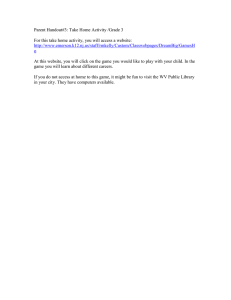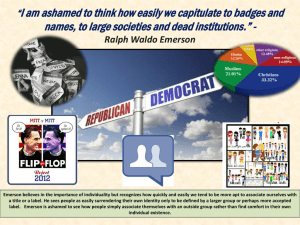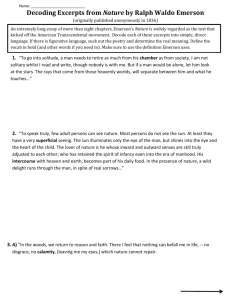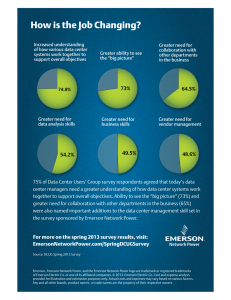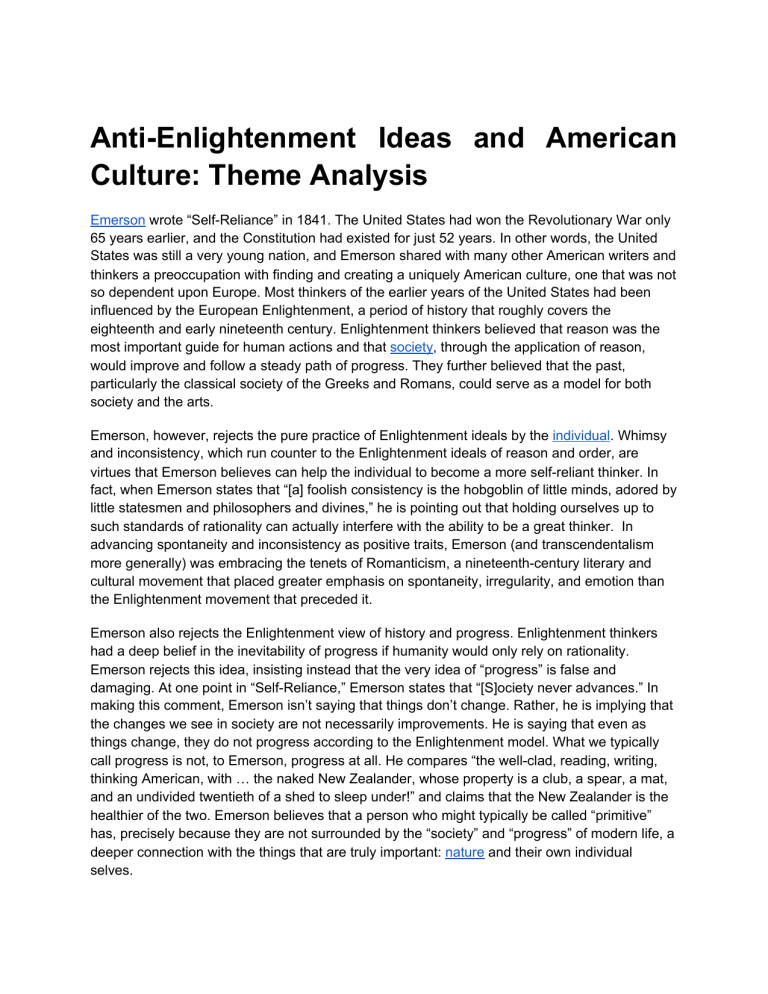
Anti-Enlightenment Ideas and American Culture: Theme Analysis Emerson wrote “Self-Reliance” in 1841. The United States had won the Revolutionary War only 65 years earlier, and the Constitution had existed for just 52 years. In other words, the United States was still a very young nation, and Emerson shared with many other American writers and thinkers a preoccupation with finding and creating a uniquely American culture, one that was not so dependent upon Europe. Most thinkers of the earlier years of the United States had been influenced by the European Enlightenment, a period of history that roughly covers the eighteenth and early nineteenth century. Enlightenment thinkers believed that reason was the most important guide for human actions and that society, through the application of reason, would improve and follow a steady path of progress. They further believed that the past, particularly the classical society of the Greeks and Romans, could serve as a model for both society and the arts. Emerson, however, rejects the pure practice of Enlightenment ideals by the individual. Whimsy and inconsistency, which run counter to the Enlightenment ideals of reason and order, are virtues that Emerson believes can help the individual to become a more self-reliant thinker. In fact, when Emerson states that “[a] foolish consistency is the hobgoblin of little minds, adored by little statesmen and philosophers and divines,” he is pointing out that holding ourselves up to such standards of rationality can actually interfere with the ability to be a great thinker. In advancing spontaneity and inconsistency as positive traits, Emerson (and transcendentalism more generally) was embracing the tenets of Romanticism, a nineteenth-century literary and cultural movement that placed greater emphasis on spontaneity, irregularity, and emotion than the Enlightenment movement that preceded it. Emerson also rejects the Enlightenment view of history and progress. Enlightenment thinkers had a deep belief in the inevitability of progress if humanity would only rely on rationality. Emerson rejects this idea, insisting instead that the very idea of “progress” is false and damaging. At one point in “Self-Reliance,” Emerson states that “[S]ociety never advances.” In making this comment, Emerson isn’t saying that things don’t change. Rather, he is implying that the changes we see in society are not necessarily improvements. He is saying that even as things change, they do not progress according to the Enlightenment model. What we typically call progress is not, to Emerson, progress at all. He compares “the well-clad, reading, writing, thinking American, with … the naked New Zealander, whose property is a club, a spear, a mat, and an undivided twentieth of a shed to sleep under!” and claims that the New Zealander is the healthier of the two. Emerson believes that a person who might typically be called “primitive” has, precisely because they are not surrounded by the “society” and “progress” of modern life, a deeper connection with the things that are truly important: nature and their own individual selves. Emerson’s hostility to Enlightenment ideals also seems to emerge from a belief that American genius will only grow once the culture rejects the impulse to imitate Europe as a source of inspiration and instead focuses on materials and inspiration that are closer at hand. Just as Emerson believed that in “trusting thyself” a person could gain self-reliance, he believed that if American writers and artists would “trust” America and focus on elements that are specific to an American geography, they could achieve self-reliance in the artistic realm as well. According to Emerson, “[I]f the American artist will study with hope and love the precise thing to be done by him, considering the climate, the soil, the length of the day, the wants of the people, the habit and form of the government, he will create a house in which all these will find themselves fitted, and taste and sentiment will be satisfied also.” Emerson’s argument for American genius was typical of the day. While the prevailing wisdom (in both America and Europe) just after the turn of the century was that American culture and arts were provincial, many American writers and artists of this period sought to transform what was unique about the United States into sources for a truly American culture.
